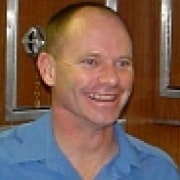Gillard, Burke and the road to Rio 20
“The UN is again bringing together governments, international institutions and major groups to agree on a range of smart measures that can reduce poverty while promoting decent jobs, clean energy and a more sustainable and fair use of resources. Rio 20 is a chance to move away from business-as-usual and to act to end poverty, address environmental destruction and build a bridge to the future.” -UN Rio 20 website
The media is currently full of news about Australia's preparations for the London Olympics. Yet barely a word has been written about preparations for the critical United Nations Conference on Sustainable Development, due to open in four weeks.
In all, 123 world leaders, including Julia Gillard, are expected in Rio de Janeiro from June 20-22 for the UN Conference on Sustainable Development, known by its shorthand title as the Rio 20 Summit. The goal is to “build global consensus on the green economy as a means to achieve sustainable development.” Organisers are at pains to emphasise this is not another UN conference on climate change.
Some 50,000 other participants are expected to arrive in Rio, including 150 representatives from various Australian organisations. More than 500 side events have been organised, spread over four “Sustainable Development Dialogue Days" leading up to the event. There is a major focus on business, including a full day Business Action for Sustainable Development (BASD 2012) on June 19.
The two major themes for the Rio 20 Summit are:
-- A green economy in the context of sustainable development poverty eradication;
-- The institutional framework for sustainable development.
Seven priorities have been highlighted: decent jobs, energy, sustainable cities, food security and sustainable agriculture, water, oceans and disaster readiness. The details of the conference can be accessed at www.uncsd2012.org including the so-called “Zero Draft Outcomes” framework document The Future We Want.
Last week, the United Nation Association of Australia held a preliminary conference in Melbourne for delegates and other interested parties to be briefed on what Australian delegates would be presenting at Rio. Key issues discussed were:
-- The process for agreeing a new global statement on sustainability and whether it should contain specific goals and measurable targets;
-- Calls for a global sustainability reporting framework applying to all companies;
-- Calls for reform of the UN governance of sustainable development.
This week the Minister for Environment Tony Burke is holding a Business Round Table to have high level discussions on the same issues.
Amongst the broad principles and the complex language of UN documents, it was unclear what was likely to come out of the Summit and whether it would have the same impact as its predecessors – the 1972 Stockholm Conference on Human Environment and the 1992 Rio Summit on Sustainable Development.
Tellingly, the Rio 20 Zero Draft Outcomes document started off as a 20 page high level overview setting a future framework for sustainable development. By the time all the 195 member nations to the Framework Convention had submitted their “square brackets” proposed amendments, the draft had ballooned to an unmanageable 400 pages.
A special meeting of officers is to be held in New York in early June with the goal of cutting this back to less than 200 pages, to enable meaningful engagement on the major issues in dispute at Rio.
The groupings are already forming along similar lines to Copenhagen with developed countries falling into several camps and lining up against the large number of underdeveloped countries, China, Russia and the rapidly emerging economies of Brazil, India and the Middle East.
The European Union is pushing an agenda to put teeth into any agreement by inserting five key goals with quantified targets and dates – to a lukewarm reception. The continuing turmoil on global financial markets and Europe in particular will blunt the potential impact of their arguments.
Developing nations are challenging the use of the term ‘green economy', which they argue defies a clear definition and is loaded with Western values about acceptable forms of development.
Others are pushing forward the term “blue economy” to focus attention on marine resources and the future management of the global commons of the oceans. This may turn out to be the one genuine area for new debate and unexpected progress.
Australia has made its own submission which focusses on seven issues:
-- Oceans and the ‘blue economy'
-- Food security
-- Sustainable development goals
-- Indigenous peoples
-- Disaster risk management
-- Gender equity and women's empowerment
-- Mining for sustainable development
The speakers from the business community were less than universal in their support for the Australian government agenda, saying some issues should not be raised and on others that they disagreed with the Australian government position.
Melanie Stutsel from the Minerals Council complained that the industry had not been adequately consulted about the mining proposals. She said the Council was “not on the same bus” as the Australian government and had more joy working with other government delegations.
With such a lack of consensus and unfortunate timing, the prospects don't look good for Rio producing substantive new ideas.
The public and the media generally seem to be ‘over' UN Conferences and media commentary is likely to start from the perspective of Rio being ‘just another talkfest'. Is it possible some unexpected proposals will emerge and gather support and could Rio 20 turn out to be another significant milestone?
Tomorrow, in the second part of this article, Climate Spectator will look at the possible outcomes from Rio 20 and the potential implications for the Australian business community.
















